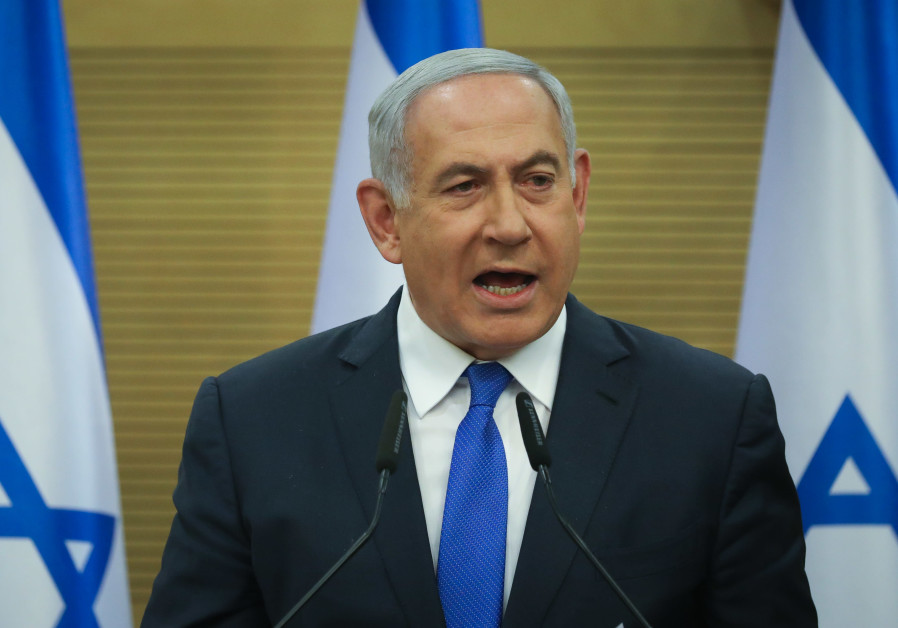Netanyahu wants to fly before elections, Foreign Ministry may make that difficult

Prime Minister Benjamin Netanyahu promises to do all he can to build a coalition in a press conference Monday 27.05.2019. (photo credit: NOAM REVKIN FENTON / FLASH 90)
The Foreign Ministry’s work sanctions are casting a shadow over a pre-election trip to Japan that Prime Minister Benjamin Netanyahu is planning at the end of the month, with the ministry’s workers committee saying they will not handle the logistics for the visit.
Netanyahu, who because of domestic politics has been grounded in Israel since early April – his longest stretch in the country since elections in 2015 – is planning a number of pre-election visits abroad, which is a good way for him to underline what he always highlights in election campaigns: his diplomatic credentials.
In addition to Japan, contacts are also under way for a visit to Ukraine in August and India in early September, before Election Day on the 17. Diplomatic sources told The Post that a discussed trip to South Korea on the back end of his visit to Japan on July 29-30 will not materialize. The idea of that trip raised some eyebrows, given that it would come just two weeks after President Reuven Rivlin’s current visit there.
Foreign Ministry sources said that unless there is a last-minute change, the ministry will not deal with the trips – i.e. prepare all the logistical groundwork – something that will make carrying them off more difficult.
The ministry has embarked on a series of work sanctions over the last few weeks – including not processing visas for visitors from India and China – to protest a worsening of work conditions for diplomats abroad.
As of January, expenses such as rent for apartments, tuition for school and expenses for hosting events are no longer paid outright, but are rather a part of the monthly salary and taxable at a rate of 40% – something that workers say has taken a huge bite out of the salaries abroad.
This will not be the first time that the Foreign Ministry has threatened to not deal with the prime minister’s trips overseas, though in most cases they have backed down at the last minute.
The one exception was in August 2010, at the beginning of the honeymoon in ties between Israel and Greece, when Netanyahu went to Athens. The ministry refused to deal with the preparatory work for that visit, so it was done instead by the Prime Minister’s Office and the Mossad, which led to friction between the ministry and the Mossad.
As a result of the Mossad being used to “break” the Foreign Ministry sanctions, the ministry cut off ties, something that made the intelligence organization’s work more difficult. Ministry workers – infuriated that the Mossad was used to break legal work sanctions – said that this was the first time something like that was done since 1951, when David Ben-Gurion issued army call-up orders to striking merchant marines in an attempt to break the country’s first strike.
As a result of the tension between the Mossad and the Foreign Ministry after the Greece incident, then-Mossad head Tamir Pardo met with representatives of the workers’ committee and promised, according to one of the participants at that meeting, that this type of situation would never happen again, that the Mossad would never again be used to break legitimate work sanctions.
Foreign Ministry work sanctions also led to the cancellation of a visit here by Russia’s president Dmitry Medvedev in 2011, something that caused a degree of diplomatic unpleasantness at the time between Moscow and Jerusalem. Medvedev did not come to Jerusalem to meet Netanyahu, but did go to Jericho for a meeting with Palestinian Authority President Mahmoud Abbas.
Join Jerusalem Post Premium Plus now for just $5 and upgrade your experience with an ads-free website and exclusive content. Click here>>






Comments are closed.